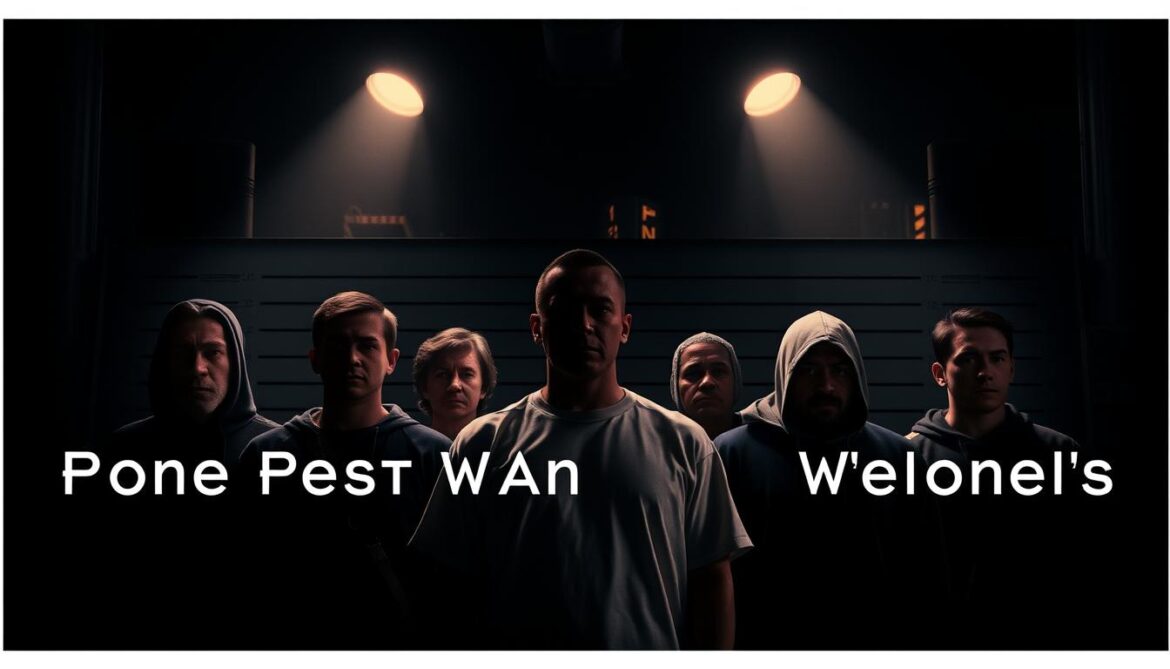Did you know 40% of Canada’s highest-priority fugitives have ties to organized crime networks in one major urban centre? Recent data reveals how criminal operations in this region now influence national security strategies, with law enforcement agencies scrambling to adapt.
You’ll discover how cross-provincial drug trafficking rings have turned the city into a battleground. Federal authorities report that these groups use advanced tactics to evade capture, including encrypted communication and international money laundering. This escalation has forced police to share resources like never before.
The current most wanted list highlights individuals linked to violent incidents and large-scale narcotics distribution. These cases aren’t isolated – they connect to broader patterns affecting communities nationwide. Public cooperation remains vital, as tips from citizens have led to multiple arrests in recent months.
Law enforcement now prioritizes dismantling hierarchies rather than targeting low-level operatives. This shift comes as criminal enterprises expand operations overseas, creating challenges for border security teams. You’ll learn how updated tracking technologies and interagency task forces aim to counter these threats.
Understanding this landscape helps explain why certain names dominate security briefings. From hidden safe houses to complex supply chains, the depth of these networks might surprise you. Stay informed – your awareness could make a difference.
An Overview of Crime Trends in Montreal and Across Canada
Recent police reports reveal a worrying shift in criminal operations nationwide. Organized networks now use complex strategies to control drug routes and avoid detection. These groups operate across provincial borders, creating challenges for local authorities.

Recent Developments and Key Incidents
Violent clashes between rival groups have surged in recent days. Police confirm these incidents often involve territorial disputes linked to narcotics distribution. One officer noted, “We’re seeing faster escalation cycles than ever before.”
Coordination between law enforcement agencies has intensified. Federal teams now share intelligence with municipal officers daily. This approach helped intercept multiple shipments last week.
The Impact on Local Communities
Residents report changing habits due to safety concerns. Many avoid night walks or crowded areas. Over 60% of surveyed households say they’ve noticed suspicious activity near their homes.
Increased police patrols and checkpoints now shape daily life in affected areas. Community leaders urge people to report unusual behavior immediately. News outlets highlight these issues, pushing for policy changes at higher levels.
The Role of Police in Tracking and Apprehending Fugitives
Recent breakthroughs in police operations highlight evolving tactics to locate high-risk individuals. Programs like Halton Regional Police’s January initiative amplify public reach, using suspect profiles to spark community tips. Within days of launching, these efforts often yield actionable leads while raising awareness about justice for victims.
Insights from Recent Arrests and Operations
Modern investigations blend digital surveillance with cross-agency coordination. One officer noted, “Specialized units now act as conductors, syncing resources like financial records and border alerts.” This approach helped intercept a Toronto suspect linked to international trafficking last month.
The Canada wanted list system proves critical. Detailed profiles let officers verify sightings faster. For example, a British Columbia fugitive was identified through license plate scanners after appearing on a regional bulletin.
| Operation | Method | Outcome |
|---|---|---|
| Halton Public Alert | Social Media Campaign | 4 arrests in 11 days |
| Cross-Province Task Force | Data Sharing | Disrupted 3 drug routes |
| Digital Surveillance | Encrypted Chat Analysis | Located safe house |
Public engagement remains vital. Police say 38% of arrests since February stemmed from civilian reports. New roles like fugitive coordinators ensure tips get analyzed around the clock, closing gaps in traditional methods.
montreal most wanted: Spotlight on High-Profile Cases
High-profile criminal cases often reveal patterns in how fugitives evade justice. Two recent captures demonstrate the evolving tactics of organized crime and law enforcement’s response strategies.
Raffaele-Giulio Draicchio and Ongoing Investigations
Raffaele-Giulio Draicchio, a 26-year-old man, spent over a year avoiding authorities after skipping bail. His arrest in June 2025 ended a sprawling auto theft operation. Police say his crew targeted Toyota 4Runners using specialized tools to bypass security systems.

The case exposed how stolen vehicles move through hidden networks. Draicchio appeared on the Canada wanted list for months before tips led investigators to his Montreal hideout. Officers recovered $15,000 in stolen goods during the raid.
Dave “Pik” Turmel and the International Pursuit
Dave Turmel’s capture in Italy marked a victory against cross-border crime. This man led the Blood Family Mafia, coordinating drug shipments across three continents. Authorities found him with fake IDs and multiple SIM cards after 427 days on the run.
Turmel’s case shows how modern criminals exploit global connections. His arrest required real-time data sharing between Canadian and European agencies. Police say such cooperation will become standard as gangs expand operations overseas.
Drug-Related Crimes and Organized Crime Networks
How do criminal networks turn neighborhoods into profit hubs? Brutal tactics and cross-border logistics fuel today’s drug trade. Groups like the Blood Family Mafia (BFM) now dominate Quebec’s underworld, leaving trails of violence that stun even seasoned investigators.

Understanding the Escalating Drug Trade
Sophisticated distribution systems stretch from local streets to overseas ports. One officer described these operations as “assembly lines of addiction”, moving cocaine and methamphetamine through hidden channels. Recent seizures exposed warehouses storing drugs alongside torture tools – a grim reminder of how traffickers enforce loyalty.
Turf wars have intensified since 2024. Competing groups use encrypted apps to coordinate shipments while avoiding detection. Police report a 73% spike in gang-related assaults linked to territory disputes. Victims often bear gruesome injuries, including amputations meant to intimidate rivals.
The Nexus Between Street Gangs and Global Networks
Local crews now serve as nodes in international supply chains. Dave Turmel’s arrest in Italy revealed how Canadian meth reaches European markets. Authorities found 14 SIM cards during his capture, showing how traffickers switch identities mid-operation.
| Recent Major Busts | Substances Seized | Network Links |
|---|---|---|
| March 2025 | 347kg cocaine | BFM & Mexican cartels |
| June 2025 | 1.2M meth pills | Street gangs & Asian syndicates |
| August 2025 | $4.8M fentanyl | Hybrid local-international group |
Days-long investigations often uncover hidden connections. A single arrest last week exposed a money-laundering scheme involving Toronto restaurants and offshore accounts. This complexity forces police to adopt military-grade tech while training officers in cyber-tracking methods.
Community Safety and Public Awareness Initiatives
When neighbourhood watch groups team up with law enforcement, magic happens. Police Chief Denis Turcotte recently declared, “Our strongest weapon against crime isn’t in our holsters – it’s in our communities.” This collaboration fuels initiatives like the Bolo Program, a national charity that shares critical alerts about dangerous suspects through digital platforms.

How Local Residents Can Stay Informed
Modern safety efforts blend tech with old-school vigilance. Police departments now send real-time crime updates through mobile apps and social media. Rewards reaching $250,000 motivate people to share tips, while encrypted reporting systems protect identities.
News outlets amplify these efforts by broadcasting suspect profiles and safety guidelines. A recent campaign helped locate three fugitives within days after their faces appeared on local broadcasts. Chief Turcotte notes, “Aware citizens disrupted six major drug deals last quarter through timely reports.”
Simple actions make big differences. Lock cars at night. Note unfamiliar vehicles. Share unusual activity through official channels. These steps helped dismantle a car theft ring in Ontario last month when a resident spotted suspicious license plates.
Neighbourhood safety committees now train volunteers in observation techniques. Workshops teach how to document details without confrontation. As criminal networks evolve, so do our collective defenses – one informed citizen at a time.
Updates on the Canada Wanted Lists and Fugitives in Focus
Canada’s priority fugitive rankings shifted dramatically this month. The Bolo Program now lists Ali Boivin as the country’s second-most sought-after suspect, trailing only Dave Turmel. Rewards for verified tips reach $250,000 until June 2025, reflecting the severity of these cases.

Exploring the Latest News and Arrest Announcements
Recent arrests reveal how quickly criminal hierarchies adapt. Police confirm that capturing one leader often exposes hidden associates within days. For example, Turmel’s Italian arrest in December triggered investigations into three new smuggling routes.
The national wanted list updates weekly as agencies process fresh intelligence. A senior RCMP officer noted, “Every drug seizure or intercepted communication reshapes our priorities.” This fluid system helps authorities focus resources on active threats.
You’ll find current details through official channels like the Bolo Program’s alerts. These updates explain why certain men dominate headlines – their networks impact multiple provinces. Recent news highlights how Boivin’s crew allegedly controlled cross-border meth distribution before his ranking rose.
Public tips remain crucial. Last week, a Quebec resident’s observation led to a Montreal warehouse raid. Officers seized firearms and 47kg of cocaine, showing how community vigilance complements police efforts.
Conclusion
Criminal networks across Canada face unprecedented pressure as law enforcement tightens its grip. Recent arrests of high-profile fugitives like Draicchio and Turmel show how cross-border teamwork disrupts drug trafficking rings. These victories prove coordinated strategies work, but challenges remain.
Your role matters. Reward programs and anonymous tip systems have helped locate dangerous suspects faster than ever. Over one-third of arrests this year stemmed from public reports – a testament to community cooperation.
As gangs expand globally, police adapt with advanced tracking tools and data-sharing protocols. Staying informed through official alerts lets you recognize threats early. Simple actions like reporting suspicious activity strengthen public safety efforts nationwide.
The fight against organized crime demands constant vigilance. By understanding evolving risks and supporting law enforcement, communities build stronger defenses. Together, these efforts shrink hiding places for those endangering Canadian neighborhoods.

